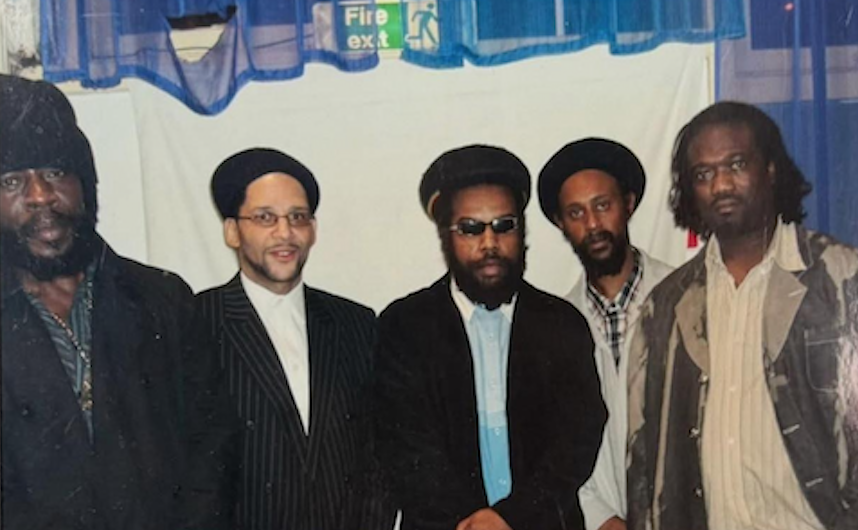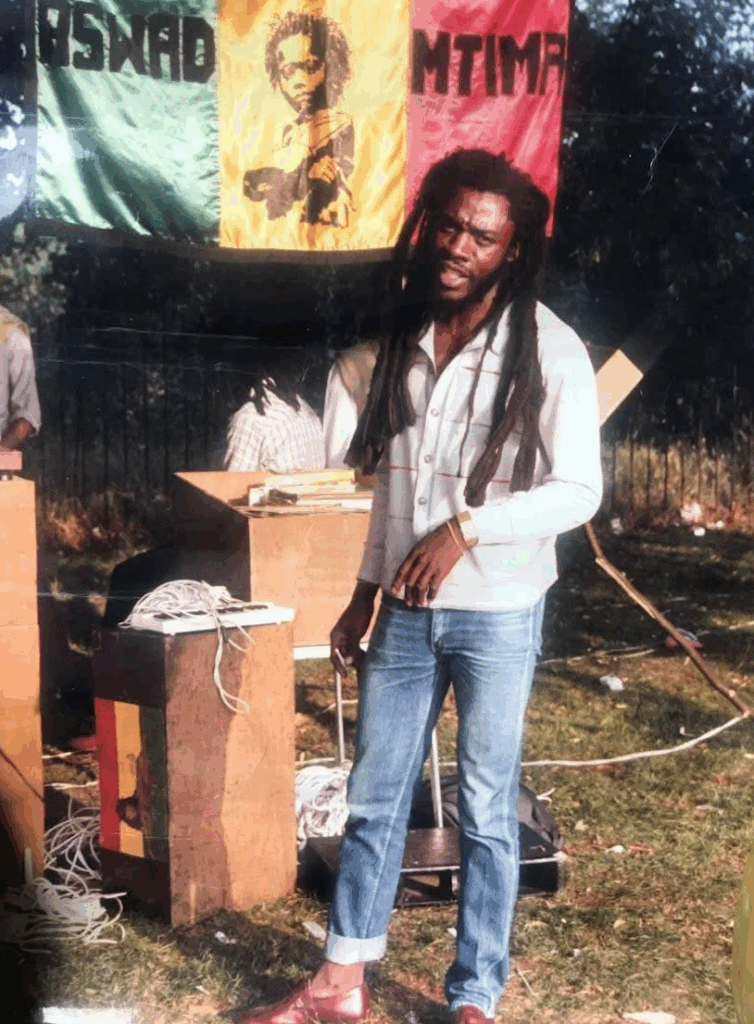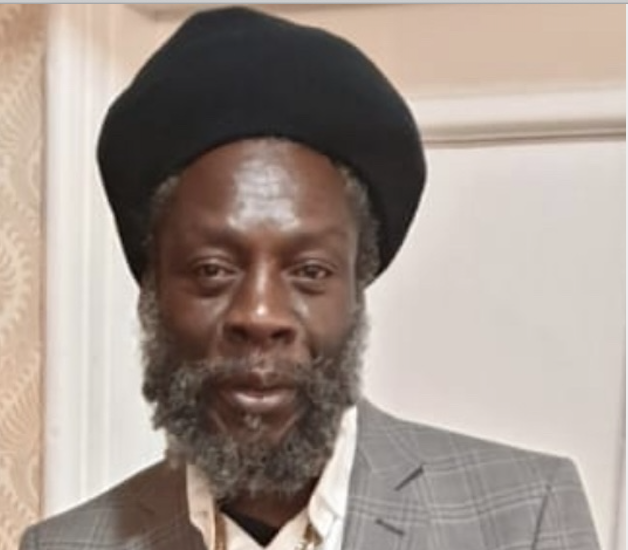THE RASTAFARIAN community and the wider West Midlands, is mourning the passing of revered elder Exodus — also known as Eldon or Dus — a friend, mentor and community father whose influence touched generations.
He transitioned on June 1st, 2025, following a brief illness, leaving behind a legacy steeped in strength, compassion and unforgettable guidance.
His funeral, taking place later today (Friday August 8) , is expected to draw a large crowd, with many from the region turning out to pay their respects to a man they regarded as a legend.

Exodus (far left) with friends, a familiar presence in gatherings like this one which celebrated unity and togetherness
Born in Jamaica and moving to England during a time of racial injustice and cultural upheaval, Exodus embraced Rastafari in the early1970s.
He chose to dedicate his life not only to his family, but to nurturing others on the same path.
‘The House of Dread’: a sanctuary for youth
His home, known affectionately as the “House of Dread”, became a sanctuary for young people and many of these youths were descendants of the Windrush generation and found themselves facing racism and inequality.
Exodus offered them refuge as they turned to Rastafarianism, but more importantly he offered them vision. He ensured strong ties with their families and built relationships with their parents earning respect not only from the youths but also from their families.
House of Dread was one of many across the region and his home became more than a roof over heads as it was also a school of life.
Here reasoning sessions started fires of consciousness, helping young people navigate the complexities of growing up Black and British in an often hostile system.
It was within these walls that life-long bonds were formed, and the seeds of community resilience were planted.
A fighter against injustice
Throughout the 1970s and 80s, Exodus was at the frontline of the fight against injustice and challenged the disrespectful and unfair treatment of Rastafarians in the prison system, where men were forced to cut their dreadlocks.
His advocacy helped usher in UK prison regulations where prisoners are now widely allowed to express their religious and cultural beliefs including keeping their dreadlocks.
This was implemented many years before the Equality Act of 2006.
 A younger Exodus at a music event embodying the joy and energy he often shared with others
A younger Exodus at a music event embodying the joy and energy he often shared with others
In the later decades, Exodus shifted his efforts toward security work at events both locally and internationally for well-known reggae artists.
‘He bridged divides between communities’
His influence continued to stretch across the regions including Smethwick, Sparkbrook, Balsall Heath, Small heath, Highgate and Handsworth where he was respected for bridging divides between the Rasta houses and fostering unity where there was once division.
“Exodus bridged the gap of division between all these areas and brought peace and unity among them that brought a coming together of the people,” said close friend Asher.
His daughter Zalika recalled his quiet, but deep support.
“He wasn’t very vocal, but he was present and always there whenever I needed him” she said.
Reflecting on those memorable moments of his undeniable wisdom she said: “I remember when he knew the exact date that one of my children would be born and on another occasion, he even told me my career path before I could see it for myself. I’ve walked in that same career for 26 years now.”
Exodus may have left this earth, but his footprints are etched deeply into the soil of community memory.
He lived a life of action, integrity and quiet revolution and so the name Exodus will echo not just in stories told, but in lives shaped and the community will always remember him for having a love for the people.
Exodus: Sunrise 1/07/1958 – Sunset 1/06/2025
